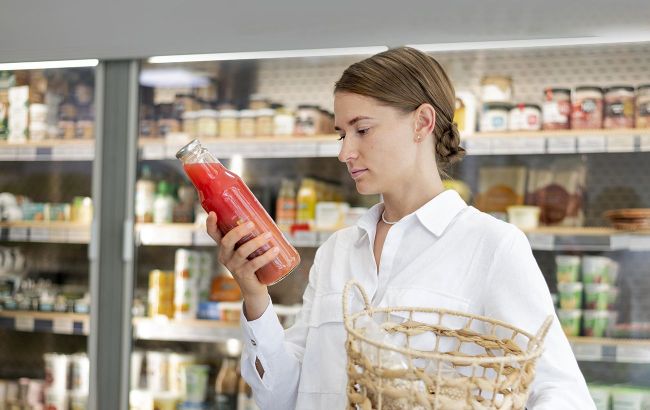Scientists identified food preservative that can harm humans
 Scientists have discovered the negative effects of one of the food preservatives (photo: freepik.com)
Scientists have discovered the negative effects of one of the food preservatives (photo: freepik.com)
According to a new study, one of the common preservatives used in many food products may interact with the gut microbiome in unexpected and even harmful ways.
The preservative in question and the danger it poses, according to findings published in the journal ACS Chemical Biology.
Researchers from the University of Chicago and the University of Illinois are trying to determine if preservatives designed to destroy pathogenic microorganisms in food products can also harm our internal bacterial environment.
"Nisin essentially acts as an antibiotic that has long been added to our food, but its impact on our gut microbes is not well studied. While it can be very effective in preventing food contamination, it can also affect the microbes in our gut," says microbiologist Zhengrun Zhang.
Nisin, belonging to a class of preservatives called lantibiotics, is a protein containing unusual amino acids that affect the functions of microbes without directly harming animals. Here, Zhang and his colleagues used genetic databases to prepare six nisin-like substances, which were then tested in the laboratory against beneficial and harmful bacteria from the human gut.
Each lantibiotic yielded different results, but all of them affected both dangerous (pathogenic) bacteria and microbes that help maintain gut health (commensal bacteria).
At this time, scientists are not ready to claim that food preservatives are harmful to our stomachs, although studies show that these chemical substances can affect a healthy gut microbiome.
"This study is one of the first to show that gut commensals are susceptible to lantibiotics and sometimes more sensitive than pathogens. Considering the level of lantibiotics now present in food products, they may also affect the health of our gut," Zhang added.
Over the years, additives such as salt or alcohol have been replaced by more exotic ingredients as a way to keep food fresh and extend its shelf life, essentially preventing the easy spread of bacteria and mold that cause food spoilage.
Recently, there have been more and more studies predicting that the ways we process and treat our food bring no benefit to our health. At least it's worth taking a closer look at the balance of good and bad bacteria.
We also talked about which three products destroy your brain and cause dementia.
This material is for informational purposes only and should not be used for medical diagnosis or self-treatment. Our goal is to provide readers with accurate information about symptoms, causes, and methods of detecting diseases. RBС-Ukraine is not responsible for any diagnoses that readers may make based on materials from the resource. We do not recommend self-treatment and advise consulting a doctor in case of any health concerns.

